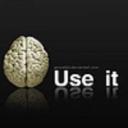Yahoo Answers is shutting down on May 4th, 2021 (Eastern Time) and beginning April 20th, 2021 (Eastern Time) the Yahoo Answers website will be in read-only mode. There will be no changes to other Yahoo properties or services, or your Yahoo account. You can find more information about the Yahoo Answers shutdown and how to download your data on this help page.
Trending News
What is the difference between atheists and the religious? They both claim to know the truth without any evidence.?
Yet they argue with each other constantly and seem to really hate each other (for the most part). I don't see a difference between the two.
12 Answers
- ?Lv 76 years ago
I do know the truth, all the established religions can have most of the stories traced back into history for older tales and myths and other historically passed on stories.
I can therefore say with 100% certainty the GOD YOUR RELIGION DEFINES does not exist.
As for any other real god - there is no evidence to support such a being, and nothing exists which requires a god to explain its existence. WE might not know everything about everything, but we know enough to know chemicals react with other chemicals, atoms and electrons act in predictable ways, and every day we learn more and more about how things work.
- ?Lv 76 years ago
Wrong.
Believers claim to know the truth without evidence.
Atheists don't believe, because there is no evidence.
- ?Lv 76 years ago
You're wrong there. You forget that withholding judgement is not belief and is thus not theism (i.e it's a form of atheism = "not theism").
I just don't believe things unless there's compelling objective evidence. Many atheists are like me.
When compelling objective evidence is available for any deities I will be more than willing to revise my beliefs. See how many theists are willing to revise their beliefs. Most theists are 100% convinced they're right and are NOT willing to revise their beliefs under any circumstances. Most of them are not even willing to try to imagine what would compel them to revise their beliefs. Unlike these gnostic theists, I do not claim to have 100% confidence in my position.
In fact I've made a short list of examples of concrete things that would change my mind:
http://stuffconcerningstuff.blogspot.com/p/what-wo...
Most theists cannot or will not even attempt such a list. That's because they start with faith, and falsely think that faith is a reliable way to arrive at the truth. Or perhaps they use feelings or "personal revelation." Again, none of those means are reliable, as evidenced by the enormous success of science which eschews those methods.
The theism spectrum is rather narrow: there are basically two kinds:
Gnostic theists (believers who are 100% sure and claim to KNOW that deities exist), which comprise the VAST majority of theists. And a few agnostic theists who have the humility to admit that their beliefs might be wrong.
The possibilities for being an atheist are broader: basically ANYTHING other than belief. For example:
1. Withholding judgement on the the theist claim (the claim that at least one deity exists). This could be for any reason: for example because of a lack of compelling objective evidence. Such a person may ALSO be withholding judgment on the ANTI-theist claim (i.e. the claim that no gods exist). It doesn't matter: they don't believe, so they're still an atheist: a weak agnostic atheist perhaps, but an atheist nonetheless.
2. Implicit atheists: who've never thought about it or don't with to think about it.
3. Atheists that believe in the ANTI-thiest claim that no gods exist, but don't claim to KNOW that belief is true
4. Those who claim we cannot know if gods exist or not.
5. Anti-theists themselves (AKA gnostic atheists) who claim to KNOW that no gods exist.
Items 1 through 4 on my list are all forms of agnostic atheism of various types. Here's more information:
http://wiki.ironchariots.org/index.php?title=Athei...
Also, we atheists DO have some evidence against certain types of gods. Particle physicist Victor J. Stenger explains:
"I will begin with the origin of the visible universe. Our knowledge today allows us to push back in time to barely a trillionth of a second after the universe began. Extrapolating from there to the origin, we find that the universe began in a tiny (but not infinitesimal) region of space. Now, information only exists when it is embodied in some physical system, and we know that there is a limit to how compact information can be. This tiny region of space could not have contained more than a few bits of information -- far too little to specify the universe that evolved from it.
As the universe expanded, it could hold more information. This created an environment in which order could emerge -- as, over time, through an endless series of random events, it did. But the tiny amount of information contained in the very early universe was not enough to include any plans of some creator at that time. This allows for the possibility of a deist god who set things up, started things going randomly, and then left. It does not allow for some specific plan of creation to be embodied in the universe from the beginning. A God with such a plan can be ruled out beyond a reasonable doubt."
-- physicist Victor J. Stenger
http://www.huffingtonpost.com/victor-stenger/the-e...
.
 Source(s): Here's a great example highlighting the differences between us: /question/index?qid=20150...
Source(s): Here's a great example highlighting the differences between us: /question/index?qid=20150... - choko_canyonLv 76 years ago
An assertion (like for instance, "a god exists"), requires evidence. A lack of belief in an assertion doesn't.
That's the difference.
- How do you think about the answers? You can sign in to vote the answer.
- JohnnyLv 76 years ago
The atheists claim they don't believe in gods, dude. Do your homework.
I'm sure somebody will tellyou about the burden of evidence....
- LightBearerLv 56 years ago
Clearly you are a theist otherwise you would know atheists do have evidence.
- GabrielLv 66 years ago
Well, people say there are UFOs they say they have seen them, then they claim something about A51
that does not change that fact that there is no UFOs or alien life outside our planet
- 6 years ago
Plug that in to other superstitious comparisons...
A person that doesn't believe in bigfoot; is it a belief?
- ANDRE LLv 76 years ago
-I contend we are both atheists. I just believe in one fewer god than you do. When you understand why you dismiss all the other possible gods, you will understand why I dismiss yours.- Stephen Roberts







